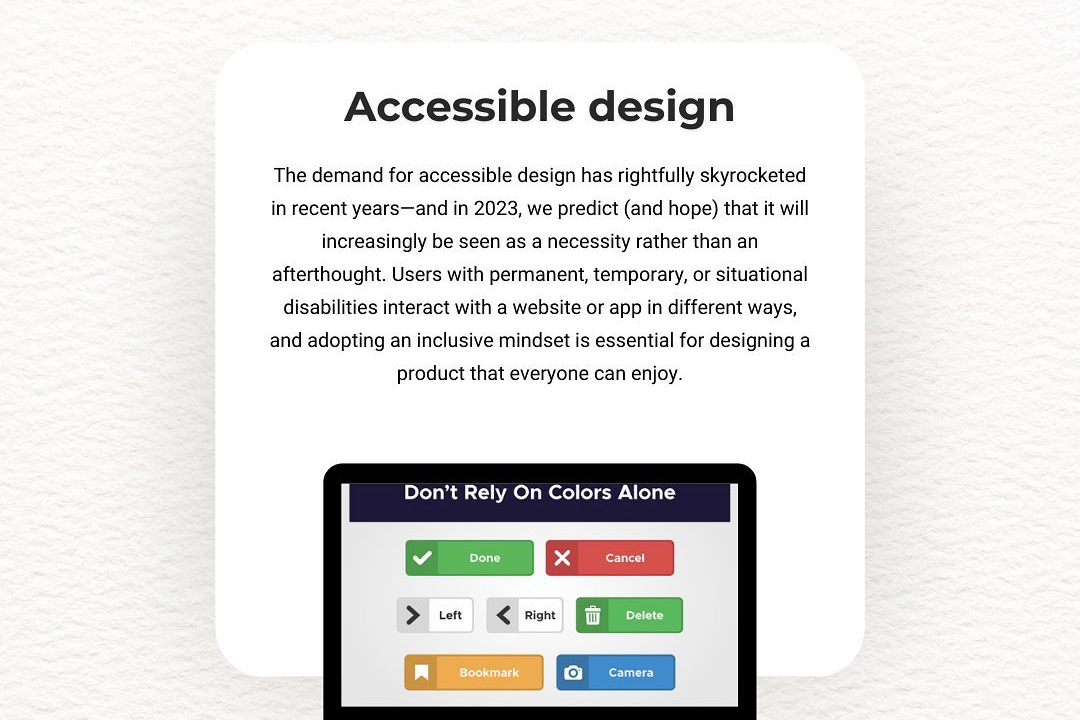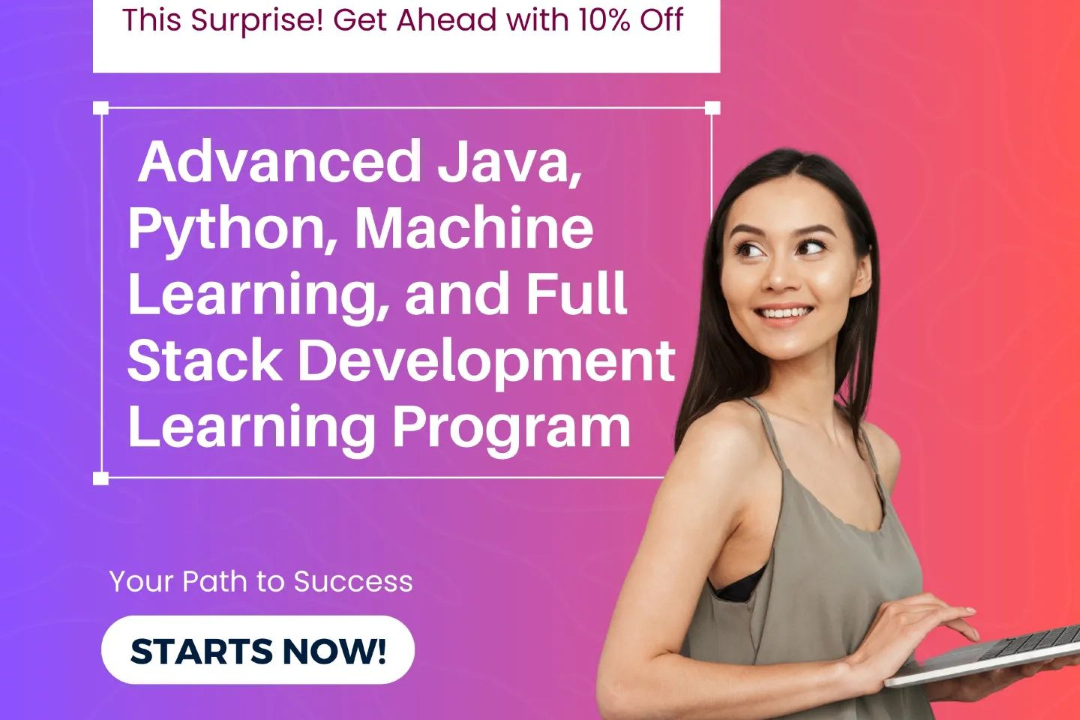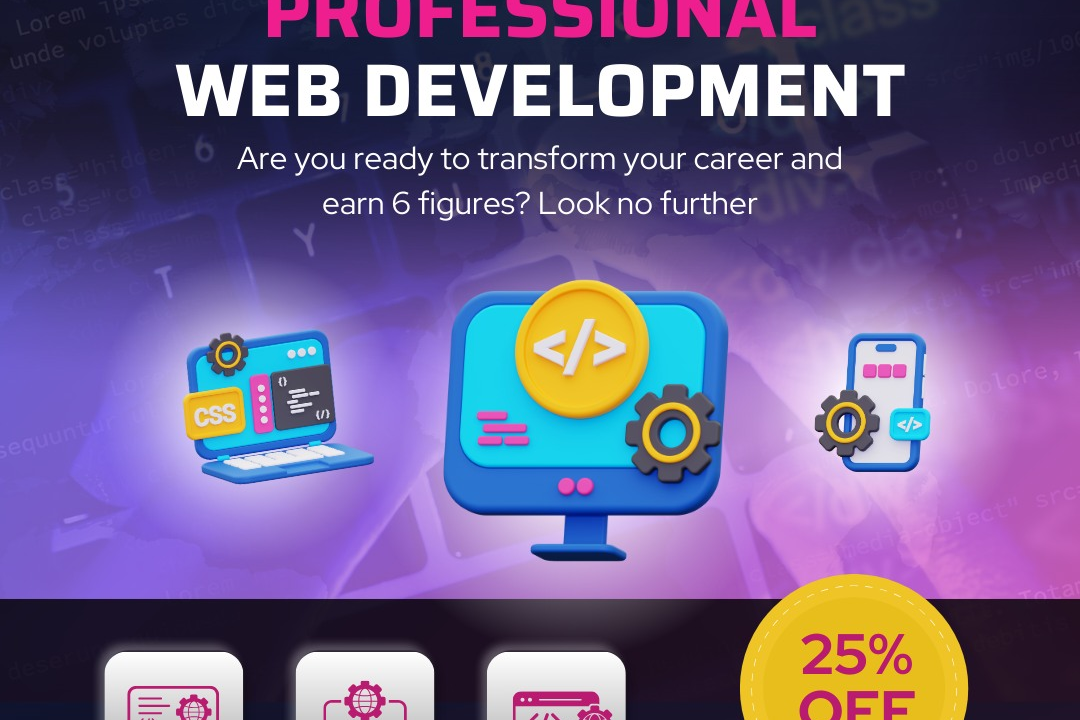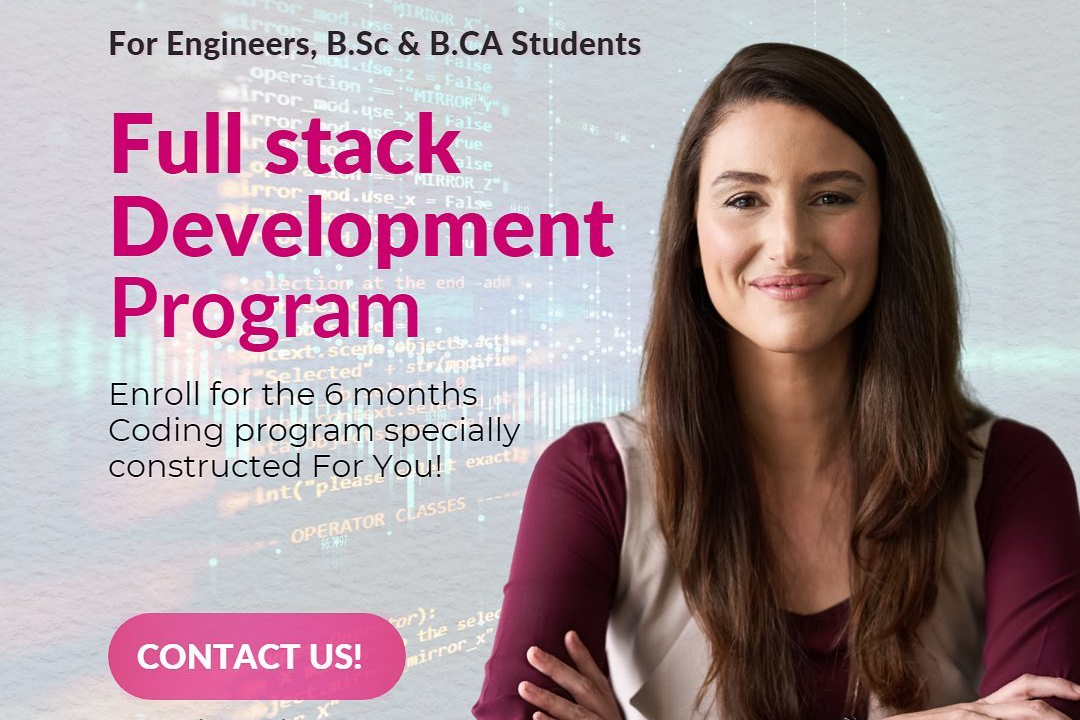Array Programing In Php
Array programming in PHP involves using arrays, which are versatile data structures that can store m
Array Programing In Php
Array programming in PHP is essential due to its ability to manage and organize multiple values under a single variable, enhancing data handling and manipulation. Arrays serve as a foundational structure for storing lists, collections, and complex datasets, enabling developers to efficiently perform operations such as sorting, filtering, and iterating through data. This versatility streamlines coding processes, reduces redundancy, and facilitates the creation of dynamic applications that require seamless management of various data types, making it a fundamental skill for any PHP developer.
To Download Our Brochure: https://www.justacademy.co/download-brochure-for-free
Message us for more information: +91 9987184296
Array programming in PHP is essential due to its ability to manage and organize multiple values under a single variable, enhancing data handling and manipulation. Arrays serve as a foundational structure for storing lists, collections, and complex datasets, enabling developers to efficiently perform operations such as sorting, filtering, and iterating through data. This versatility streamlines coding processes, reduces redundancy, and facilitates the creation of dynamic applications that require seamless management of various data types, making it a fundamental skill for any PHP developer.
Course Overview
The “Array Programming in PHP” course offers a comprehensive exploration of array data structures, essential for effective data manipulation and organization in PHP. Participants will delve into the different types of arrays, including indexed, associative, and multidimensional arrays, while mastering key functions and methods to perform operations such as sorting, filtering, and traversing. Through practical projects and real-time applications, learners will gain hands-on experience in leveraging arrays to enhance their programming capabilities, ultimately equipping them with the skills needed to develop efficient and dynamic web applications. This course is ideal for both beginners seeking foundational knowledge and experienced developers looking to refine their array manipulation techniques.
Course Description
The “Array Programming in PHP” course is designed to provide learners with a solid understanding of array data structures in PHP, covering types such as indexed, associative, and multidimensional arrays. Participants will explore essential functions for creating, manipulating, and optimizing arrays, enabling them to handle data more effectively. Through practical, real-time projects, students will apply their knowledge to solve common programming challenges, ultimately enhancing their ability to develop dynamic web applications and improve overall coding proficiency in PHP. This course is suitable for all skill levels, from beginners to advanced programmers seeking to deepen their understanding of array functionality.
Key Features
1 - Comprehensive Tool Coverage: Provides hands-on training with a range of industry-standard testing tools, including Selenium, JIRA, LoadRunner, and TestRail.
2) Practical Exercises: Features real-world exercises and case studies to apply tools in various testing scenarios.
3) Interactive Learning: Includes interactive sessions with industry experts for personalized feedback and guidance.
4) Detailed Tutorials: Offers extensive tutorials and documentation on tool functionalities and best practices.
5) Advanced Techniques: Covers both fundamental and advanced techniques for using testing tools effectively.
6) Data Visualization: Integrates tools for visualizing test metrics and results, enhancing data interpretation and decision-making.
7) Tool Integration: Teaches how to integrate testing tools into the software development lifecycle for streamlined workflows.
8) Project-Based Learning: Focuses on project-based learning to build practical skills and create a portfolio of completed tasks.
9) Career Support: Provides resources and support for applying learned skills to real-world job scenarios, including resume building and interview preparation.
10) Up-to-Date Content: Ensures that course materials reflect the latest industry standards and tool updates.
Benefits of taking our course
Functional Tools
1 - PHP Development Environment: A robust PHP development environment is essential for hands on learning. Students will set up a local server using tools like XAMPP or MAMP, which allow them to run and test their PHP scripts effectively. These environments mimic real world server settings, providing learners with the necessary experience to deploy their applications on actual servers later.
2) Integrated Development Environment (IDE): Tools such as Visual Studio Code, PhpStorm, or NetBeans will be introduced to students. These IDEs offer features like code completion, syntax highlighting, and debugging tools, making it easier for learners to write efficient PHP code. By using an IDE, students gain familiarity with industry standard tools that enhance productivity and streamline the coding process.
3) Version Control Systems: Introductions to Git and platforms like GitHub will be part of the training. Version control systems allow students to track changes in their code, collaborate on projects with peers, and manage multiple project versions efficiently. Understanding version control is crucial for modern development practices and promotes best practices in collaborative environments.
4) Database Management Tools: Students will also work with database tools like phpMyAdmin for MySQL integration. Learning to manipulate arrays in PHP often involves interaction with databases to fetch and manipulate data. Through practical exercises, students will understand how PHP arrays interact with data from the database, reinforcing their understanding of dynamic data handling.
5) Debugging Tools: The course will teach students how to use PHP debugging tools like Xdebug or built in error reporting functions. These tools enable learners to trace errors in their code and understand the execution flow of their PHP scripts. Debugging is a vital skill for developers, as it helps identify and resolve issues quickly, ensuring that applications run smoothly.
6) Online Learnings Resources and Communities: Students will be guided to utilize online resources such as PHP documentation, Stack Overflow, and various programming forums. Learning to effectively search for solutions and engage with the developer community will empower students to troubleshoot issues independently and stay updated with the latest developments in PHP programming. This skill is invaluable for continuous learning in their careers.
7) PHP Frameworks: Students will be introduced to popular PHP frameworks like Laravel, Symfony, and CodeIgniter. These frameworks provide a structured approach to application development, along with built in features for routing, data management, and security. Understanding frameworks allows students to build robust web applications efficiently and adhere to industry standards, making their projects more scalable and maintainable.
8) APIs and Web Services: The course will cover the basics of creating and consuming APIs (Application Programming Interfaces) using PHP. Students will learn how to connect PHP applications to external services, integrate third party APIs, and create RESTful services. This knowledge is essential for developing modern web applications that interact with various services and data sources.
9) Security Best Practices: Security is a critical aspect of web development. Students will learn about common security vulnerabilities in PHP applications, such as SQL injection, cross site scripting (XSS), and cross site request forgery (CSRF). The course will provide guidelines and best practices for securing PHP applications, ensuring that learners can implement necessary measures to protect sensitive data and maintain user trust.
10) Performance Optimization: Understanding how to optimize PHP code for performance is crucial for any developer. The training will cover techniques such as caching, minimizing resource usage, and optimizing database queries. Students will learn to recognize performance bottlenecks and implement solutions that enhance the responsiveness and efficiency of their applications.
11 - Project Management Tools: Familiarity with project management and task tracking tools such as Trello, JIRA, or Asana will be emphasized. These tools assist developers in organizing their workflows, managing project timelines, and collaborating effectively with team members. Understanding how to utilize these platforms will prepare students for real world development scenarios where project management is key.
12) Deployment Strategies: The course will cover different deployment strategies for PHP applications, including cloud hosting, shared hosting, and containerization with Docker. Students will learn how to deploy their applications and ensure proper configuration for production environments. Knowing how to manage deployment processes is essential for transitioning applications from development to live environments.
13) Mobile Responsiveness: As web applications increasingly target mobile users, students will learn how to make their PHP applications responsive. This includes integrating frameworks like Bootstrap or utilizing CSS Media Queries to ensure that applications function seamlessly across a variety of devices. Understanding responsive design principles is crucial for enhancing user experience.
14) Continuous Integration/Continuous Deployment (CI/CD): An introduction to CI/CD practices will be offered, showcasing how to automate the testing and deployment processes for PHP applications using tools like Jenkins, GitLab CI, or CircleCI. This approach improves development speed and ensures that code changes are consistently integrated and deployed while maintaining application reliability.
15) Real Time Collaboration Technologies: As development increasingly shifts towards collaboration, students will explore tools and technologies that facilitate real time collaboration, such as WebSockets. Learning how to manage real time data exchange within applications will empower students to create interactive and user friendly experiences, essential in today's fast paced web environment.
Browse our course links : https://www.justacademy.co/all-courses
To Join our FREE DEMO Session:
This information is sourced from JustAcademy
Contact Info:
Roshan Chaturvedi
Message us on Whatsapp:
Email id: info@justacademy.co











